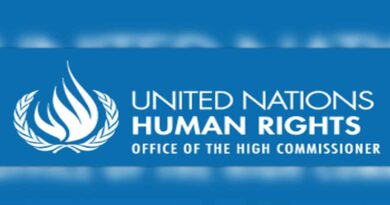Iqra Choudhary MP Appeals to Supreme Court for Enforcement of Places of Worship Act 1991
(Judicial Quest News Network)
Iqra Chaudhari, a prominent political leader and Member of Parliament, Samajwadi Party has urgently approached the Supreme Court, demanding the immediate and full implementation of the Places of Worship (Special Provisions) Act, 1991, following recent escalations of violence related to the status of religious places. Chaudhari’s petition addresses the potential risks to communal harmony, underscoring the growing need for judicial intervention to uphold the secular fabric of India.
The petition came before a bench comprising Chief Justice of India, Sanjiv Khanna, and Justice Sanjay Kumar, who deliberated on the constitutional validity of the Places of Worship Act. Justice Khanna remarked on the frequency of petitions being filed, citing the disturbing trend where legal suits are being instituted weekly, particularly those challenging the status of religious structures, especially mosques and dargahs. This issue has gained increased prominence in the wake of violent incidents, most notably following the Sambhal Shahi Masjid Survey in Uttar Pradesh on November 24, 2024, which tragically led to the deaths of six civilians in police firing.
The Sambhal incident was not an isolated case, but part of a broader, concerning pattern of litigation involving religious sites, despite the statutory protection offered by the Places of Worship Act 1991. This Act, a crucial piece of legislation, prohibits any alteration in the religious character of any place of worship as it existed on August 15, 1947. The petitioners argue that repeated lawsuits targeting mosques and dargahs, followed by swift judicial orders allowing surveys and investigations, jeopardize communal peace and undermine India’s constitutional values of harmony, tolerance, and secularism.
Chaudhari’s plea further outlines the dangers posed by the increasing frequency of such legal battles, emphasizing the potential for stoking religious tensions. The petition points out that judicial decisions that do not adequately scrutinize the merits of these claims risk aggravating already sensitive communal issues. This failure to address the underlying issues threatens to unravel the fabric of India’s secular society.
The petition also delves into the interpretation of legal definitions within the Ancient Monuments and Archaeological Sites and Remains Act, 1958, particularly regarding the inclusion of places of worship within its scope. The plea argues that such an interpretation violates Articles 25, 26, and 29 of the Indian Constitution, which safeguard religious freedom. According to Chaudhari’s petition, these rights can only be subject to reasonable restrictions based on public morality or health, not on the basis of arbitrary legal definitions that might target religious places.
One of the most pressing issues raised by the petition is the 1991 Places of Worship Act, which mandates that the religious character of any place of worship as it stood on August 15, 1947, must remain unchanged. The plea further asserts that any ongoing or new litigation under the 1958 Act seeking to alter the religious nature of such places of worship should be immediately terminated, as such actions violate the spirit of the Places of Worship Act 1991.
Chaudhari’s legal team, led by senior advocate Kapil Sibal, also argued against the growing trend of trial courts permitting surveys of religious places without adequately addressing the legal and factual implications. These hasty decisions risk exacerbating tensions rather than promoting justice and understanding.
The petition calls for a set of critical judicial orders, including:
- Full enforcement of the Places of Worship (Special Provisions) Act, 1991.
- Clarification that the Ancient Monuments and Archaeological Sites and Remains Act, 1958, does not include places of worship in its definition.
- A ban on any further petitions or legal proceedings that attempt to alter the religious character of any place of worship as it stood on August 15, 1947.
- Directions for courts to stop entertaining suits that challenge the religious nature of places of worship, ensuring that the law remains steadfast in preserving religious harmony.
- Issuance of guidelines to prevent violations of the Places of Worship Act, ensuring that any future suits are carefully scrutinized and do not disturb communal peace.
This appeal comes after a significant Supreme Court ruling on December 12, 2014, which imposed a ban on fresh lawsuits and survey orders affecting religious sites. The Court’s interim orders had prohibited surveys of places like Gyanvapi Mosque, Mathura Eidgah, and other sensitive sites, aiming to prevent further polarization.
The plea for the Places of Worship Act 1991 follows multiple petitions filed over recent years, challenging the Act and seeking changes to the status of places of worship. Notably, intervention applications have been filed by religious and political groups, including the Gyanvapi Mosque Committee and Shahi Eidgah Mosque Committee, highlighting the contentious nature of the cases at hand. While the Union Government has yet to file a response, the case continues to spark debate over its implications for India’s secular values.
Senior counsel for Chaudhari, Kapil Sibal, along with Mushtaq Salim, Lzafeer Ahmed, and other legal experts, have represented the petitioners in this matter. They argue that the Places of Worship Act is crucial to maintaining peace, unity, and secularism in India, protecting the religious integrity of places of worship across the nation.
The Supreme Court’s decision on this matter will have far-reaching consequences for religious harmony in India and could potentially set a precedent for how religious disputes are handled by the judiciary in the future. The outcome of this petition will likely determine the fate of numerous ongoing legal challenges and the protection of India’s secular identity.




